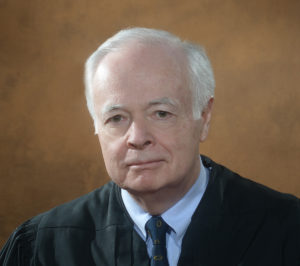
Alliance: Mass. AG presents ‘nothing new’ in ‘Right to Repair’ lawsuit
By Dave LaChance onAnnouncements
Information gathered by the Massachusetts Attorney General’s Office showing that Subaru dealers have been voluntarily disabling the telematics systems in 2022 vehicles sold in Massachusetts establishes nothing new in a suit over the state’s new “Right to Repair” (RTR) law, the Alliance for Automotive Innovation (AAI) said in a court filing Tuesday.
In a 14-page memorandum, AAI argued that the material addresses a claim that it never made: that disabling telematics to avoid Section 3 of the state’s new Data Access Law could not be done. Instead, it argues it shows that the requirements of the law can be avoided, which it said is not the same thing as compliance.
The Alliance, the trade group representing virtually all of the nation’s automakers, including Subaru, has sued the state over the voter-approved law, which would augment existing Massachusetts “Right to Repair” language regarding diagnostics access. The Alliance has asked the court to permanently enjoin enforcement of the law.
Massachusetts Attorney General Maura Healey on Oct. 22 asked Judge U.S. Massachusetts District Court Judge Douglas Woodlock to reopen evidence in the case, Alliance for Automotive Innovation v. Maura Healey, to allow the introduction of new material.
She said Subaru dealers told her office they have been disabling the telematics system, known as StarLink, to “comply with” the new law. She said the action was at the direction of Subaru of New England (SNE), which indicated in documents provided that the decision had been made by Subaru of America (SOA).
A hearing on Healey’s motion, originally scheduled for noon on Wednesday, has been rescheduled to 11:30 a.m. on Thursday.
A claim never made
In its memorandum opposing the reopening of evidence, AAI argued that the material compiled by the attorney general “establishes nothing new” in the case, and addresses a claim that the alliance never made: that disabling telematics to avoid Section 3 of the Data Access Law could not be done.
“Instead, Auto Innovators and its members claimed—and showed—that avoidance is not legal compliance with Section 3 of the Data Access Law, and therefore is irrelevant to the preemption analysis, which turns on whether compliance with both statutes is possible,” reads the memorandum, signed by attorney Laurence A. Schoen of Levin, Cohn, Ferris, Glovsky and Popeo, P.C., on behalf of the Alliance [emphasis the author’s].
 A key issue in the case is whether it is possible for OEMs to comply with both federal law and Section 3 of the Massachusetts Data Access Law, which requires any OEM with a telematics system to provide an “inter-operable, standardized and open access platform across all of the manufacturer’s makes and models” independent repairers could use, beginning with the 2022 model year.
A key issue in the case is whether it is possible for OEMs to comply with both federal law and Section 3 of the Massachusetts Data Access Law, which requires any OEM with a telematics system to provide an “inter-operable, standardized and open access platform across all of the manufacturer’s makes and models” independent repairers could use, beginning with the 2022 model year.
“Ultimately, the documents at most help establish what Auto Innovators never contested. Auto Innovators’ witnesses agreed that it was possible to disable (or not enable) telematics in new vehicles sold to avoid the penalties associated with Section 3,” the memorandum states. “But the Court correctly recognized that, as a legal matter, avoidance of the Data Access Law’s requirements is not compliance with those requirements.”
The Alliance noted that, during arguments on June 16, Woodlock acknowledged this point: “Now, when I say ‘comply,’ I don’t mean they can comply by picking up all their toys and disappearing from the telematics market. That’s not compliance. That’s simply conscious avoidance of it,” the judge said at the time.
Unavoidable consequences
The Alliance further argues that avoiding the law’s provisions “leads to its own set of issues—for example it precludes an automaker from providing over-the-air updates to safety features or providing automatic crash notification.”
In addition, AAI argues that the attorney general’s proposed new documents don’t address the requirements of Section 2 of the Data Access Law, “for which neither compliance nor avoidance is possible.”
Section 2 deals with telematics standardization and access. “Notwithstanding anything in the preceding paragraph, motor vehicle owners’ and independent repair facilities’ access to vehicle on-board diagnostic systems shall be standardized and not require any authorization by the manufacturer, directly or indirectly, unless the authorization system for access to vehicle networks and their on-board diagnostic systems is standardized across all makes and models sold in the Commonwealth and is administered by an entity unaffiliated with a manufacturer,” the section states.
AAI argued that Healey “waited nearly a month before bringing the documents at issue to the Plaintiff’s and the Court’s attention,” without explaining the delay. “That alone is reason enough to deny the Attorney General’s motion [to reopen evidence],” the memorandum reads.
The Alliance also argued that the material represents “inadmissible hearsay,” and that Healey has failed to prove its authenticity.
Evidence an OEM ‘has complied’
Healey, in the AG’s court filing Friday, said the new facts her office has gathered were not available when the trial concluded in July, because the 2022 models were not yet on sale.
 She wrote that the new evidence “is highly important and probative, because it demonstrates that a major OEM not only can immediately comply, but has complied, with both Section 3 and federal law—contrary to one of the Alliance’s core contentions.”
She wrote that the new evidence “is highly important and probative, because it demonstrates that a major OEM not only can immediately comply, but has complied, with both Section 3 and federal law—contrary to one of the Alliance’s core contentions.”
Healey said her office had been contacted by a Massachusetts resident who had bought a 2022 Subaru Outback from a North Reading dealership, and found that the StarLink telematics system had been disabled.
“He stated that he had been advised by the dealer that Subaru could not legally turn on StarLink due to the ‘RTR law.’” Healey wrote in her motion. Her office then contacted 20 of the state’s 22 authorized Subaru dealerships, all of which confirmed that “StarLink could not be enabled for MY22 Subaru vehicles sold to customers in Massachusetts.”
During the trial, the attorney general presented expert opinion evidence that disabling any telematics system in a 2022 model year or later vehicle is one way for an OEM to comply with both state and federal law.
In the closely watched case, AAI has argued that the new law would require OEMs to introduce cybersecurity risks to their vehicles, and that the 2022 model year time frame makes designing, testing and implementing meaningful countermeasures impossible.
Proponents said the measure, which augments the state’s original Right to Repair law passed in 2012, guarantees that as technology advances, drivers can continue to get their cars repaired where they want.
Healey has stipulated that her office would not enforce the law before Sept. 2, when a decision is expected in the case. In the event that she does begin enforcement, she has promised to give the parties 14 days’ notice.
The law was presented as a ballot question in November 2020, and approved by a 75-25 margin.
Judge explores severability, preemption, OBD-II authorization in ‘Right to Repair’ proceedings
OEMs, Mass. AG file briefs ahead of closings in ‘Right to Repair’ trial
Mass. ‘Right to Repair’: Trade groups plan ‘REPAIR Act’; OEMs turn to courts; CCC analyzes
Images
Featured image: Traffic streams across the Leonard Zakim Bunker Hill Bridge in Boston at dusk. (AlbertPego/iStockphoto)
The John Joseph Moakley United States Courthouse stands next to Boston Harbor. (Velocitymarla/iStockphoto)
U.S. Massachusetts District Court Douglas Woodlock. (Provided by U.S. Massachusetts District Court)
Massachusetts Attorney General Maura Healey. (Provided by Healey’s office)

